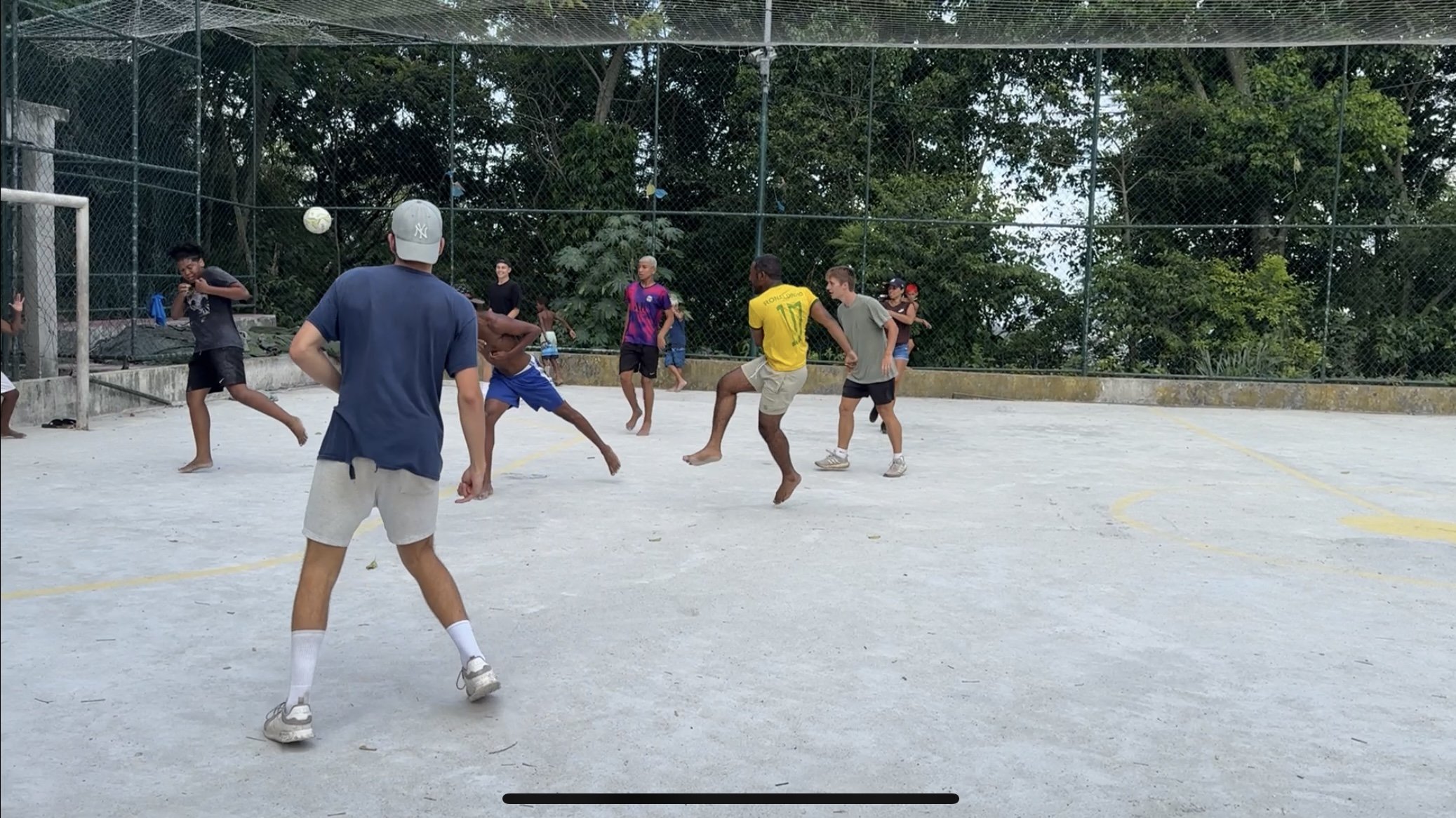The Truth Behind Brazil’s Favelas: A Tourist’s Perspective
We’ve become accustomed to speaking authoritatively about people we’ve never met, places we’ve never seen and cultures we’ve never tasted. Favelas aren’t an exception. Brazilians who’ve never set foot in one perpetuate negative stereotypes, leaving one with the impression that all 758 favelas resemble the movie City of God.
Tour guides often describe favelas, or communidades, as a separate country – each one with a unique history and culture. They house the lifeblood of a city; sanitation workers, kitchen staff and builders all live in favelas. Everything you admire about cities like Rio De Janeiro: its pristine beaches, carnival, and live music, are kept afloat by favelados (residents).
A Paradoxical World
Wandering through narrow side streets, I was struck by the contradictions within favelas. Beautifully furnished living rooms housed in dilapidated homes. Chickens sat on satellite dishes. Armed gang members casually sat next to young girls with playing dolls. Nothing made sense, but the sense of community was palpable.
Within favelas’ chaotic landscapes, untapped talents reside. Future football stars, doctors, scientists, and poets await discovery. However, low literacy rates and limited access to education paint a bleak picture for even the most talented favelados.
Navigating the concrete steps to reach the pitch at the top of Santa Marta, I played barefoot, feeling a sense of community as the kids cheered me on. Samba schools and football are integral parts of favela life, showcasing the vibrant culture within.
Trekking through Rochinia’s hilly terrain, Carlos debunked stereotypes about favella life. I also felt safer in the favella than in touristy parts of Rio, experiencing a genuine sense of community.
Historical Roots and Political Struggles: What’s the history behind favelas?
The historical roots of favelas trace back to the late 1800s, following the abolition of slavery and the overthrow of Brazil’s monarchy. After participating in the Canudos war, soldiers settled in Rio's hills, naming their new home ‘Morro da Favela’ after the shrubby trees where they had triumphed. Despite promises of payment from the government, they never received compensation, leading to the establishment of the first favela.
As favelas grew in number during the 1920s, they became a source of resentment for Rio’s residents, who saw them as magnets for crime hindering urban planning. However, mass migration to Rio de Janeiro in the 1940s, driven by economic collapse and a massive decline in exports, resulted in the construction of more favelas to address housing shortages.
In 2008, the Brazilian State made a concerted effort to control favelas: Rio de Janeiro launched the Pacifying Police Units program (Unidades de Polícia Pacificadora — UPP), a state-run operation to disarm the drug trade and reclaim the city’s favelas from the gangs that had controlled them since the mid-1980s.
The power struggle between drug lords and police officers is not new. Many favelados and even some police officers admit that the police stations at the top and bottom of favelas are simply window dressing. Favelas are still controlled by gangs. However, maintaining the image that the cops are in control is an important one particularly during Brazil’s preparations to host the two biggest events in the world: World Cup (2014) and the Summer Olympic Games (2016).
Violent clashes between armed officers and gangs claim innocent lives, exacerbating the sense of injustice felt by residents. The assassination of political figures like Marielle Franco highlights ongoing tensions within favela communities. Marielle, a rising star in the Socialism and Liberty Party (PSOL), born and raised in the Maré favela, symbolized hope for many. Her politically motivated assassination raises questions about accountability and justice.
Navigating Daily Life:
How do people receive mail without registered addresses?
People in Favelas don’t have an official address – street names and door numbers are non-existent – making it almost impossible for people to access essential services such as opening a bank account. However. Some socially conscious startups have begun digitally mapping these areas, providing delivery instructions for subscribed properties. Registered addresses often volunteer to receive mail for their neighbours: Some favelas use pigeonholes to hold everything from medical records to credit cards; these are occasionally collected and distributed among residents.
Where does all the rubbish go without bins?
Another quirk of favelas is that there are virtually no communal bins. Local volunteers and favelados collect rubbish using litter pickers and black bags, and trek down the hilly terrain to throw their trash into large steel containers which are collected by rubbish companies.
Recycling and collecting rubbish are a vital source of income for many residents. Some if them focus on collecting valuable commodities such as copper. Waste management is also a health and safety issue especially as “trash landslides”, caused by heavy rainfall, have destroyed homes and led to multiple deaths.
Beyond the Superficial
Empathy must go beyond mere acknowledgment: It requires diving into the complexities, embracing the stories of favelados, and challenging false assumptions. Favelas are not just geographical locations; they are resilient, vibrant and creative communities whose residents keep major cities, like Rio De Janeiro, afloat.
Sources
Terms:
Favelado: https://www.dictionary.com/browse/favelado#
Canudos War: https://www.jstor.org/stable/1006824
Articles:
Guardian Article (2018) - Marielle Franco: Brazil’s favelas mourn the death of a champion: https://www.theguardian.com/world/2018/mar/18/marielle-franco-brazil-favelas-mourn-death-champion
Guardian Article (2010) - Rio Landslide: https://www.theguardian.com/world/2010/apr/08/rio-landslide-brazil
Videos:
BBC News report - Brazil’s Favelas: How do you deliver to somewhere with no address? - https://www.youtube.com/watch?v=z0uZ5xbrcp8

